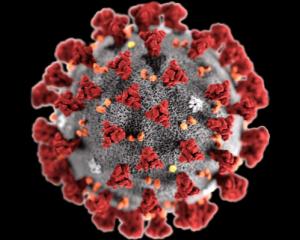Massey University researchers who s tudied hundreds of pregnant women and their offspring say living on a farm during pregnancy may help reduce the chance of the child developing asthma, eczema and even hayfever.
The researchers have reported in the European Respiratory Journal, that exposure before and after birth halved the risk of those allergic diseases. They suggested that exposure to animals and the bacteria they carry may affect the foetus's immune system.
Other experts have noted that farm livestock can also carry infections such as Chlamidydophila abortus, which can cause abortions in humans as well as sheep.
The paper, Farm Exposure in Utero May Protect Against Asthma, Hayfever and Eczema, supports other studies which have suggested that living on a farm, with regular contact with animals, during the early years of life, can reduce the risk of asthma.
It adds to the so-called "hygiene hypothesis" which says that early exposure to potential allergens results in a reduced risk of asthma development.
But it because continued exposure was required to maintain optimal protection, the findings suggest that to prevent allergic diseases, such as asthma, hay fever and eczema, measures should be taken before birth and may have to be continued throughout life.
To test the theory that continual contact of pregnant women with farm animals reduced the risk of their children developing asthma, the researchers studied woman from a mixture of urban and rural places in the lower North Island. They surveyed 1333 farmers' children and 566 "reference children" aged 5-17 years.
Professor Jeroen Douwes said it was already known that children living on farms, with mothers who were exposed to animals, had a lower prevalence of asthma.
The investigation of what specific immunological mechanisms play a role received an $800,000 grant from the New Zealand Health Research Council in 2006.
It found that the greatest apparent protection -- a 50 percent reduction in asthma, and an even greater reduction in eczema and hay fever -- was gained by children whose mothers had been exposed to farm life during pregnancy, and who still lived on a farm.
The reasons for this were likely to be related to the way that the child began to develop its immune system, with frequent exposure to animal bacteria.
This might suppress the production of particular immune cells linked to the development of asthma.
But the researchers suggested that protection gained from exposure during pregnancy might only persist if the child was exposed after its birth as well.
The findings are unlikely to lead to any change in current advice to pregnant women, which urges caution about contact with farm animals. An infection which can cause miscarriage in pregnant ewes can lead to the same result in humans, and faeces of other animals can also affect a pregnancy.
Dr Elaine Vickers, research manager at Asthma UK, told the BBC: "The causes of asthma are still largely unknown and the processes involved in asthma development are incredibly complicated, including family history, environment and lifestyle."
The European Respiratory Journal is the peer-reviewed scientific publication of the European Respiratory Society.











